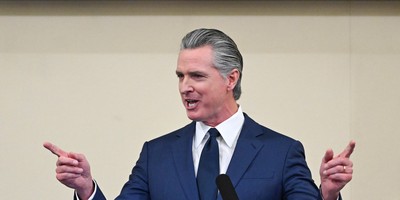A major justification by President Obama for the individual mandate in the Affordable Care Act, which requires everyone to buy health insurance, is that every time an uninsured patient receives care in an emergency room, doctors and hospitals shift the cost to those of us who have insurance. But the impact of such cost shifting is vastly overblown and government, through the legislation, makes the problem worse, not better.
As a general surgeon in private practice for over 30 years, I have lost track of how many times I have performed emergency surgery on uninsured patients who never paid their bills. For me, just like for most doctors and hospitals, the only opportunity to recover our losses comes when it is time to renegotiate insurance contracts, because we typically sign contracts with insurance companies that bind us to fee schedules. The medical bills submitted to the insurance companies reflect “list prices.” Then the insurance companies readjust the charges to conform to their contracts. (Anyone who has ever been mailed an “Explanation of Benefits” report after submitting a claim to a health plan has seen how this process works.)
Even then, shifting losses from uninsured patients onto the insurance companies of my other patients is hard for me to do, for the same reason a grocer that routinely sustains losses due to breakage or theft cannot make up for those losses by raising prices: competition from the grocer down the block keeps a check on cost shifting.
Nevertheless, when people don’t pay their medical bills, somebody has to bear that cost. But who?
A study from the National Bureau of Economic Research found that in many cases, it’s other uninsured patients. Many uninsured patients who do pay their bills wind up paying the “list prices” for the services they received. The list price is well above what any provider expects to receive from an insurance company. Physicians collect more from those uninsured patients than they would from insured patients. That extra money often covers the cost of uninsured patients who don’t pay. A study from the University of Southern California in 2008 found a similar phenomenon in California hospitals.
Recommended
Some of the cost of uncompensated care no doubt gets shifted to patients with private insurance. But the effect is small. Analysts at the Urban Institute concluded that uncompensated care accounts for 2.8% of all health care spending, and that cost shifting due to the uninsured raised private insurance premiums 1.7% “at most.” The non-partisan Congressional Budget Office agrees: “Overall, the impact of cost shifting on payment rates and premiums for private insurance seems likely to be relatively small.”
Any government-directed “solution” is likely to make the problem worse. Much of the current uncompensated care problem is due to a 1986 law called EMTALA (the Emergency Medical Treatment and Labor Act). This law bans hospitals from transferring patients to facilities set up to provide care to the indigent. In the process, it encourages people not to purchase health insurance and to use emergency rooms for primary care. People know that hospital emergency rooms must treat them, and cannot transfer them, even if they have no intention of ever paying for their care. So, for many, the urgency to purchase health insurance becomes less acute.
Congress predicated a federal takeover of health care on the idea that the public must be rescued from cost shifting due to the uninsured—a crisis that adds roughly 2% to everyone’s health insurance premiums. For this, Congress is forcing everyone to purchase and pay more for health insurance? For this, Congress created an unelected board that will ration care? For this, Congress raised taxes by half a trillion dollars? That’s like treating a roach problem with explosives.
As a physician, I worry about the harm that President Obama’s health care law will rain down on patients in the name of saving two percent on your health insurance.

























Join the conversation as a VIP Member